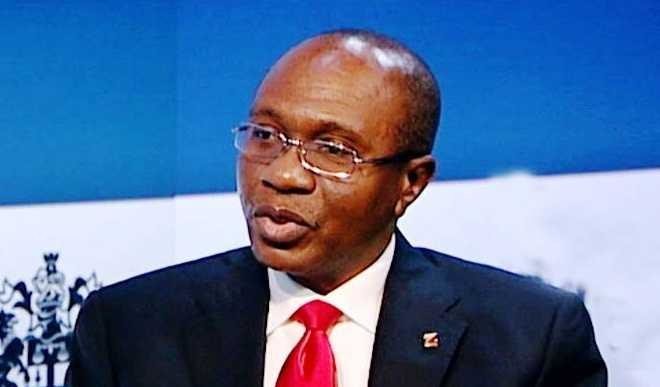One year after the beginning of the Central Bank of Nigeria (CBN’s) intervention in the sale of Foreign Exchange (FOREX) in Chinese Yuan (CNY), the apex bank has sold over 1.3billion CNY, a compilation by Daily Trust has shown.
With its first sale on July 27, 2018, at an exchange rate of around N47 to CNY 1, the total interventions so far accrued to about N61bn worth.
A further breakdown of the data indicates that the apex bank intervened about 26 times in the Forex market for the sales of Yuan, specifically for the purpose of letters of credit for small and medium industries.
The data reveal that the CBN had been pumping an average of over CNY100million on a monthly basis to support its dollar interventions.
The CBN, on Friday, July 20, 2018, flagged off its intervention in the sale of Forex in CNY, signalling the consummation of the Bilateral Currency Swap Agreement (BCSA) signed with the Peoples Bank of China (PBoC) on April 27, 2018.
According to CBN, the BCSA is for a maximum of CNY15bn for N720bn with a three-year tenor.
The apex bank further disclosed that the sales would be through a combination of spot and short tenors.
It added that the exercise, which shall be Special Secondary Market Intervention Sales (SMIS) retail, would be dedicated to the payment of Renminbi denominated Letters of Credit for raw materials and machinery and agriculture.
Since the commencement, the CBN has been receiving bids from all authorised dealers who would have debited the customers’ accounts for the Naira equivalent of their bids, then the CBN would debit authorised dealers’ current account on the day of intervention to the tune of the Naira equivalent of their bid request.
Nigeria and China established formal diplomatic relations on February 10, 1971. Relations between the two nations grew closer as a result of the international isolation and Western condemnation of Nigeria’s military regimes (1970-1998).
Nigeria has since become an important source of oil and petroleum for China’s rapidly growing economy; and Nigeria is looking to China for help in achieving high economic growth.
The currency swap agreement allows importers of goods from China to conclude their transactions in the Chinese currency, the Renminbi (Yuan), instead of the dollar.
From a lowly $2bn in 2002, the volume of bilateral trade between Nigeria and China grew to a yearly $14.9bn, with prospects of further growth going forward.
The trade between Nigeria and China accounts for nearly one third of the trade between China and West Africa.
Mr. Zao Ling Xiang, the Economic and Commercial Counsellor of the Chinese Embassy in Nigeria, said: “Nigeria’s trade figure is 8.3 per cent of China’s total trade volume, and 42 per cent of the total trade volume between China and Africa.”
The currency swap deal with China is developing so much excitement within the business community in Nigeria because prior to this agreement, every trade transaction between these two nations has been consummated in the US dollar.
The fall in the international price of crude oil which accounts for over 70 per cent of Forex has taken its toll on the central bank’s ability to meet the ever growing demand for the dollar.
The Director General of the Lagos Chamber of Commerce and Industry (LCCI), Muda Yusuf, said the swap deal had helped to smoothen the payment system in the bilateral trade between the two countries, but stressed that it had not really strengthened the naira in the Forex market, as the nation would have to enhance its productive base to achieve that.
Ken Ukaoha, National President of the National Association of Nigerian Traders (NANTS), an umbrella organisation for businesses trading across continents of the globe, cautioned the Federal Government to beam its searchlight on the activities of the regulatory agencies such as the Standards Organisation of Nigeria (SON), NAFDAC, Consumer Protection Council (CPC), the Nigeria Export Promotion Council (NEPC), the Customs and the Federal Ministry of Trade and Investment to ensure that they collaborated with the CBN so that the policy would not bring about any negative effects to Nigeria.”
He said, “More importantly, our local industries must not surrender or succumb to the whims and caprices of importation. We’re not going to slaughter our local industries on the altar of unrestricted importation from China courtesy of the currency swap.
“The agencies, including the Nigeria Customs Service (NCS), I must reiterate, must rise to ensure the standardisation of products coming into this country. We must not just allow all manners of imported goods into the country all in the name of the currency swap deal between China and Nigeria.”
Speaking to Daily Trust on how the swap has progressed, Isaac Okorafor, CBN’s Director, Corporate Communication, said the CBN was satisfied with the continued stability in the Forex market, and assured that the CBN would remain committed to ensuring that all the sectors of the Forex market continued to enjoy access to the needed Forex.

 Join Daily Trust WhatsApp Community For Quick Access To News and Happenings Around You.
Join Daily Trust WhatsApp Community For Quick Access To News and Happenings Around You.



